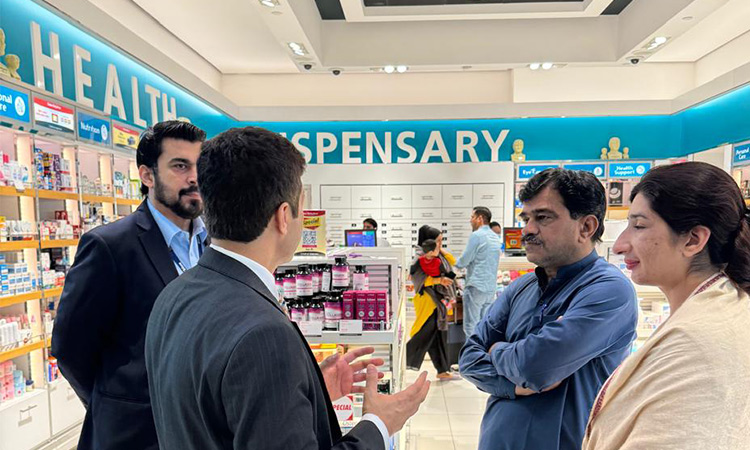
Cooked Meals and Raw Emotions: The Bear Nails Them Both
The worst were the evenings when we had around 80 or 100 customer bookings.
The later they arrived, the more intense the vibe got between the staff. You could feel the strained energy and frustration in the air. The chefs were having one cigarette after the other because they knew once service begins, they won’t have another smoke break for three to four hours.
I wasn’t one of them, though. I was a kitchen porter (the most disgusting, soulless, and disrespected position you can get working in a restaurant). The place was an Italian franchise on Baker Street in Central London, where I worked for about a year and a half.
I didn’t stay because of the paycheck or because I liked the job. At first, I stayed to learn English. I was a newcomer immigrant from Eastern Europe, barely speaking the language, when a kind-hearted childhood friend got me the gig. But, after a few months of slowly getting to know everyone, I stayed to be part of a team. I stayed for the intriguing stories, the late-night conversations, the big laughs, the free food, and the drinks our rule-bending assistant manager nicked for us on occasion.
After our old, condescending, and cocky head chef left (and his replacement came from among us), we became a well-oiled machine in the kitchen. We still had fights and arguments, but we helped out one another as much as we could. We were slowly becoming friends without realizing it. That’s as essential in this line of work as any practical skill. Being a kitchen employee is a stressful, overwhelming, and often depressing profession, which can deteriorate your health if you do it intensely for too long. But if you’re lucky enough to have a well-assembled group of people, it can give you the kind of camaraderie you’ll never forget.
The time I spent there was a pivotal experience in my life that I wouldn’t change for anything. However, there’s a reason you don’t see many older folks working in restaurants. The relentlessly long shifts and the number of assholes you encounter will crush your soul eventually. Plus, there aren’t many rewards for working in a kitchen: the pay is negligible, the hours are inhumane, and the potential risk of developing mental and physical health issues increases by the day. But the people who become your (second) family are worth the struggle.
When I started watching Christopher Storer’s new show, The Bear, on Hulu, I related to it instantly. The panic-attack-inducing pilot brought back the good and bad memories, too: the jargon, the constant yelling, the omnipresent stress, the heat, and the smell. But I also found it authentic and refreshing.
It certainly helped that star Jeremy Allen White brought the same explosive intensity and tremendous charisma that made him the most memorable character on Shameless for 10 years. As Carmen ‘Carmy’ Berzatto, the new owner of the family sandwich shop The Original Beef of Chicagoland, he’s one helluva guy to root for. Carmy inherited the business from his older brother Mike (Jon Bernthal), who committed suicide not long before he came home. Prior to that, he worked in one of the best Michelin-star restaurants in the United States. And yet, he dropped everything to return when he heard about his brother’s death—there’s a lot of emotional baggage to unpack there. So, Carmy is back somewhat out of grief and guilt to revolutionize this place and its employees who want none of that.
That’s made clear by everyone, but most passionately by his brother’s best friend, Richie (Ebon Moss-Bachrach), who thinks of him as a pretentious, self-important, and ungrateful dude, who has no business being here. They constantly clash like bulls, yelling and cursing breathlessly, because neither of them wants to admit their misplaced guilt regarding Mike’s suicide. But their love for him is also what unites them.
The only one who supports Carmy’s efforts is Sydney (Ayo Edebiri), the new, overqualified employee with a passion for food and a sweet spot for this joint that was her dad’s favorite place. Throughout the eight half-hour episodes, she becomes Carmy’s right hand to shape this restaurant into a top-notch cuisine and its workers into a caring and loving family.
There’s a lot to praise in The Bear. The hilarious yet raw and sensitive writing, the stylish cinematography, and the fast-paced direction that wastes no time to move the plot forward and deepening the relationships between its characters. Yet the most impressive aspect of it, for me at least, is how it captures camaraderie. I just know that feeling (especially in this setting) so precisely. I know how it unites people through a job they often despise but learn to love due to a sense of belonging. For knowing that they can rely on these folks. For feeling the comfort to confide in them. I know because I lived it. I had the fortune to meet and become close with some great people I would have never met or gotten to know in any other circumstance. I found friends in them who encouraged me to want and do more, who carved my personality in a crucial way, and who lifted me up when I felt down. And, of course, who taught me English (well, the basics, at least).
There’s a 7-minute-long, single-take monologue in the last episode, in which Carmy finally addresses his guilt towards his brother and exposes his grief. The amount of hurt and pain he reveals is overwhelming and relieving at the same time. It’s White’s best scene—a genuine and heartbreaking confession that cuts into your soul—which reveals so much about trauma, grudges, and fading relationships. The inability to fully know what someone’s going through mentally and emotionally. But it also speaks about the influence a person can have on another. The memories they shared, the bond they had—an unspoken appreciation for friendship.
I miss the camaraderie I shared with those guys back then, spending most of the hours of the day together. Once we left that restaurant, we lost touch with each other. We found different jobs, got married, made families, or moved out of the country. That’s how life goes. You lose people—family, too. In the end, Carmy realizes that he needs to let go of Mike and focus on the family and friends he had left and who are still alive. To not lose track of time again. To be the bigger man. To accept that there are things you can’t control.
It’s not easy for any series or movie to convey these raw feelings that are so difficult to articulate, and channel them in a way that viewers can relate to on a profound level. To make us relive those emotions, the camaraderie, and the sense of belonging they might’ve lost a long time ago. Because that’s what matters. That’s what you’ll remember: The people, not the job.
For me, it’s the reason why The Bear is so special. And I can’t thank the creators, cast, and crew enough for that.
Akos Peterbencze is an entertainment writer based in London. He covers film and TV regularly on Looper, and his work has also been published in Humungus, Frame Rated, and Fanfare. Akos is a Rustin Cohle aficionado and believes that the first season of True Detective is a masterpiece. You can find him talk about all-things pop culture on Twitter (@akospeterbencze) and Medium (@akospeterbencze).
For all the latest TV news, reviews, lists and features, follow @Paste_TV.



















